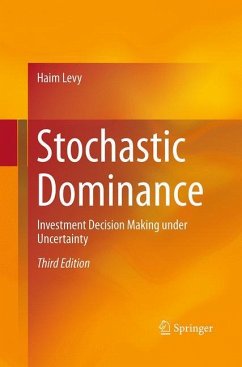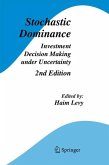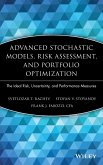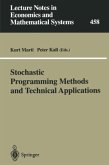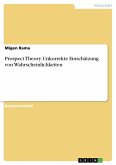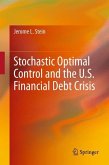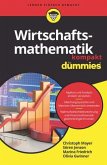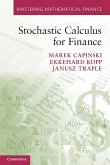This fully updated third edition is devoted to the analysis of various Stochastic Dominance (SD) decision rules. It discusses the pros and cons of each of the alternate SD rules, the application of these rules to various research areas like statistics, agriculture, medicine, measuring income inequality and the poverty level in various countries, and of course, to investment decision-making under uncertainty. The book features changes and additions to the various chapters, and also includes two completely new chapters. One deals with asymptotic SD and the relation between FSD and the maximum geometric mean (MGM) rule (or the maximum growth portfolio). The other new chapter discusses bivariate SD rules where the individual's utility is determined not only by his own wealth, but also by his standing relative to his peer group.
Stochastic Dominance: Investment Decision Making under Uncertainty, 3rd Ed. covers the following basic issues: the SD approach, asymptotic SD rules, the mean-variance (MV) approach, as well as the non-expected utility approach. The non-expected utility approach focuses on Regret Theory (RT) and mainly on prospect theory (PT) and its modified version, cumulative prospect theory (CPT) which assumes S-shape preferences. In addition to these issues the book suggests a new stochastic dominance rule called the Markowitz stochastic dominance (MSD) rule corresponding to all reverse-S-shape preferences. It also discusses the concept of the multivariate expected utility and analyzed in more detail the bivariate expected utility case.
From the reviews of the second edition:
"This book is an economics book about stochastic dominance. ... is certainly a valuable reference for graduate students interested in decision making under uncertainty. It investigates and compares different approaches and presents many examples. Moreover, empirical studies and experimental results play an important role in this book, which
makes it interesting to read." (Nicole Bäuerle, Mathematical Reviews, Issue 2007 d)
Stochastic Dominance: Investment Decision Making under Uncertainty, 3rd Ed. covers the following basic issues: the SD approach, asymptotic SD rules, the mean-variance (MV) approach, as well as the non-expected utility approach. The non-expected utility approach focuses on Regret Theory (RT) and mainly on prospect theory (PT) and its modified version, cumulative prospect theory (CPT) which assumes S-shape preferences. In addition to these issues the book suggests a new stochastic dominance rule called the Markowitz stochastic dominance (MSD) rule corresponding to all reverse-S-shape preferences. It also discusses the concept of the multivariate expected utility and analyzed in more detail the bivariate expected utility case.
From the reviews of the second edition:
"This book is an economics book about stochastic dominance. ... is certainly a valuable reference for graduate students interested in decision making under uncertainty. It investigates and compares different approaches and presents many examples. Moreover, empirical studies and experimental results play an important role in this book, which
makes it interesting to read." (Nicole Bäuerle, Mathematical Reviews, Issue 2007 d)

